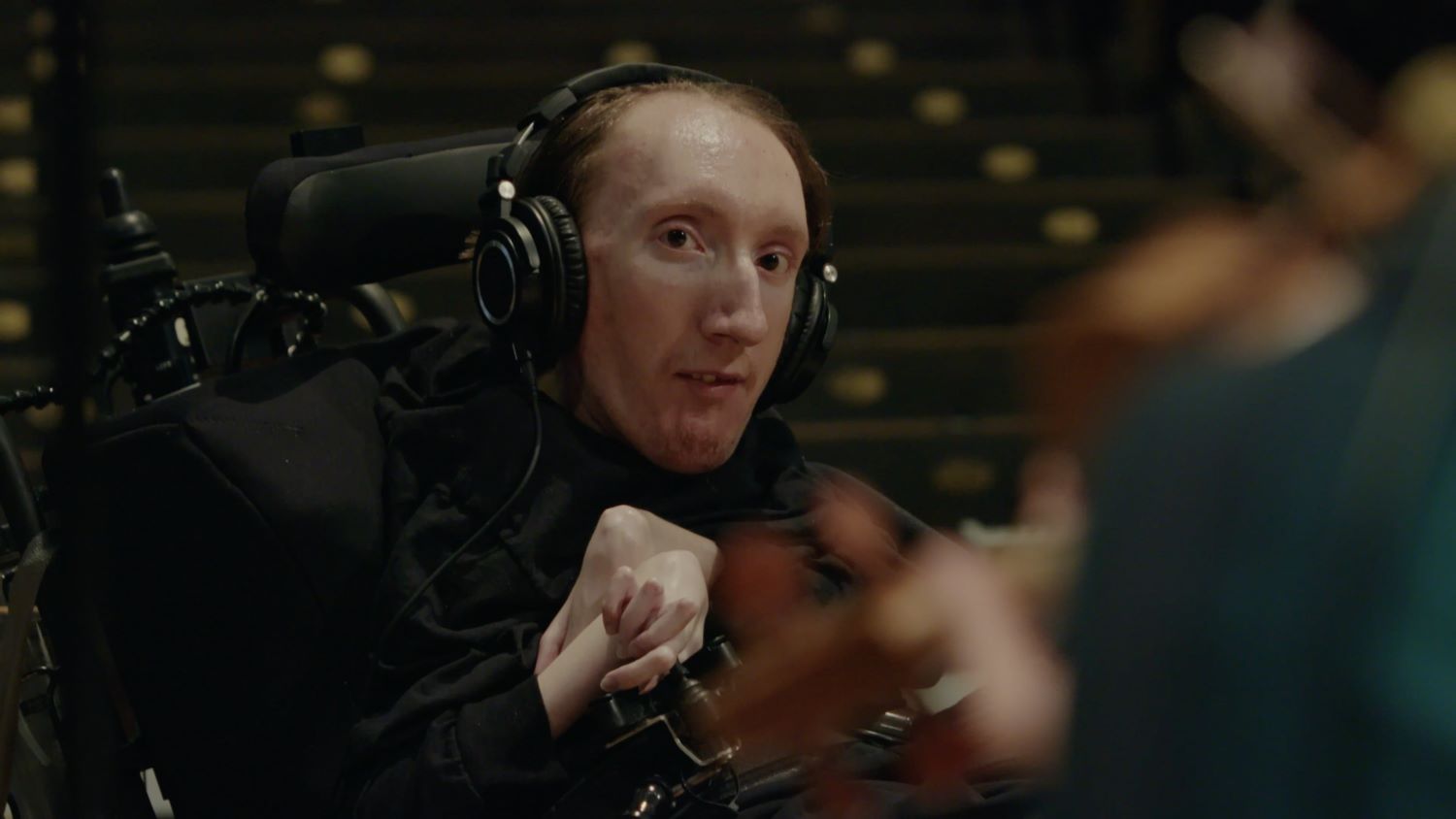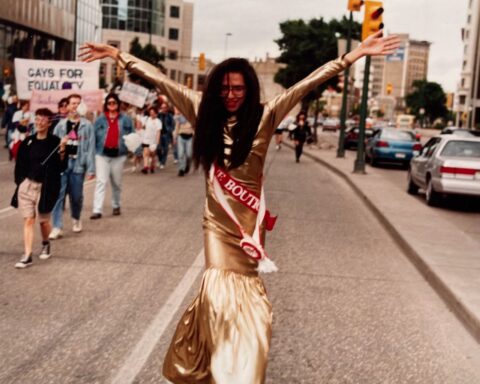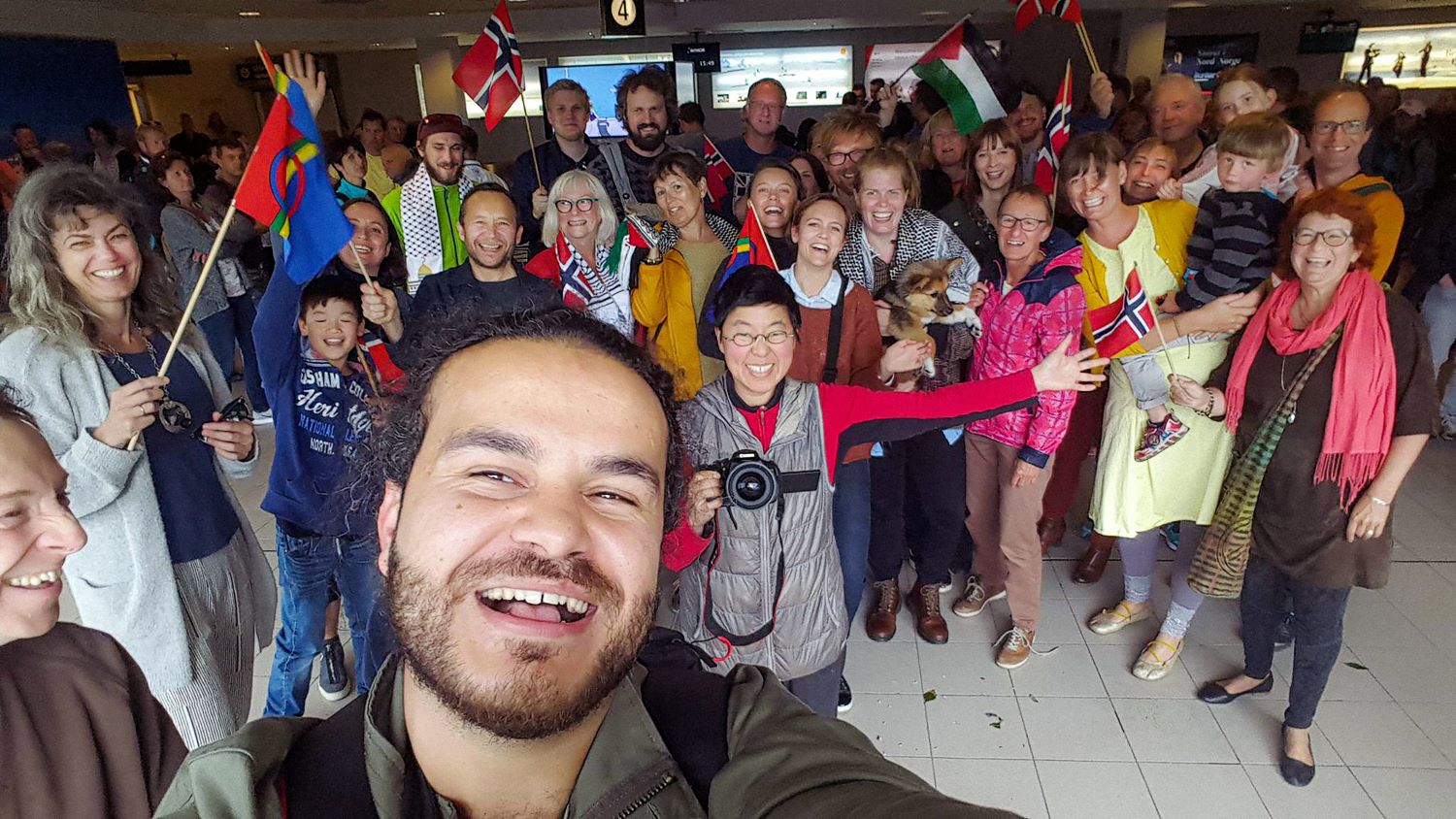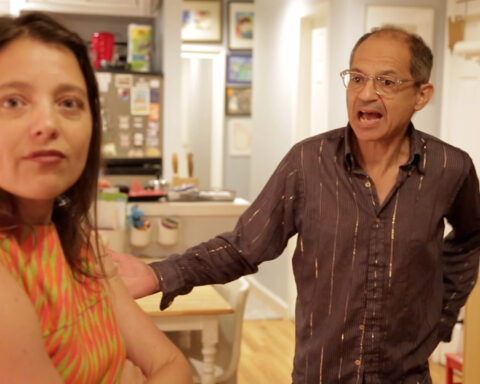When Ari Kinarthy was 16 years old, his parents enrolled him in a Vancouver care facility for people with disabilities. It ultimately changed his life, having been diagnosed in his youth with type-2 spinal muscular atrophy, a motor neuron disease that affects the nervous system and voluntary muscle movements. After attending a music therapy session, Kathy, the therapist on duty, noticed that Kinarthy had a natural sense of rhythm.
“I was a bit stronger back then so I could hold an egg shaker or a tambourine and shake it to music,” Kinarthy recalls. “I remember her saying, ‘Wow, you’re right on the beat there.’ I didn’t think much of it.”
Through Kathy’s encouragement, Kinarthy and his parents found a similar program in their Victoria home where Kinarthy met Allan Slade, who has now been his music therapist for 17 years.
With Slade’s assistance, Kinarthy began a career in music composition. At the start, Slade introduced Kinarthy to Soundbeam, a technology that turned Kinarthy’s wheelchair movements into music. He used Soundbeam for a few years and performed live on several occasions; however, Kinarthy soon found the sporadic nature of the technology to be too free-wielding. He wanted to “really study music and get into it,” beyond the fun of Soundbeam.
In 2012, Kinarthy released his debut record, The Lion’s Journey, to critical acclaim and followed this with The Lion’s Roar two years later. For both records, Kinarthy utilized Soundbeam in a more purposeful manner to compose music by drawing upon multiple genres and sounds from around the world.
Ari’s Theme, a documentary by Nathan Drillot and Jeff Lee Petry (Wizard Mode), follows Kinarthy as he tackles his latest and most personal piece yet. Reflecting on his childhood, family, and those who inspired and helped him along the way, Kinarthy uses his inherent musical gifts to compose the titular, “Ari’s Theme.” The film goes on a journey with Kinarthy to not only revisit some of his most treasured memories, but to delve inside the mind of an artist who’s aware of his mortality more than most.
Ahead of the film’s world premiere at Hot Docs 2024, POV spoke to Kinarthy about the origins of the film and the process of getting musicians to bring his work to life.
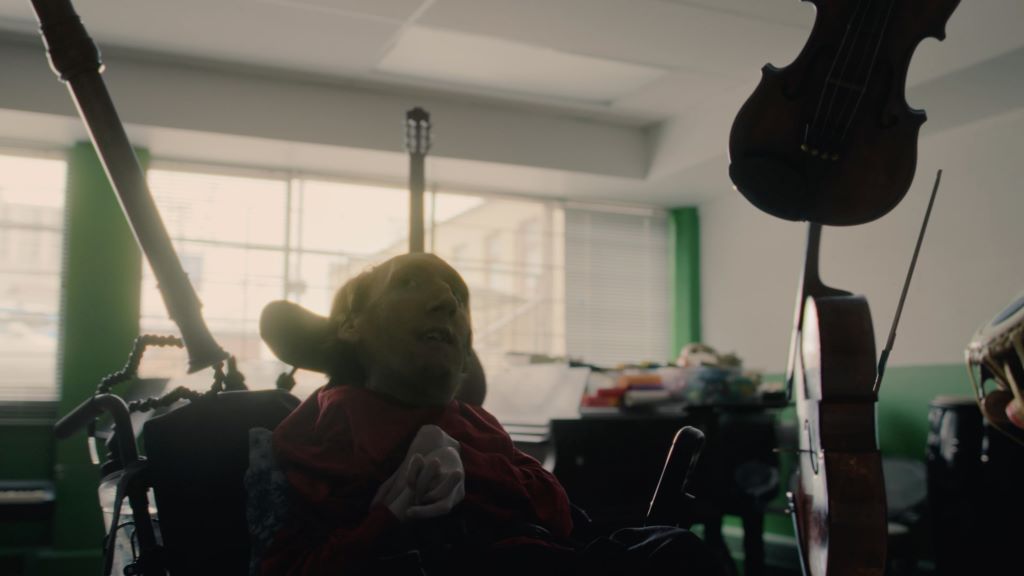
POV: Rachel Ho
AK: Ari Kinarthy
This interview has been edited for brevity and clarity.
POV: How did this documentary come to be?
AK: I have a bunch of content of my music on the internet, and there was an article written in Jewish Independent about my music. In that article, it said that my dream is to write music for a film or a TV show. One of the directors, I believe his wife saw the article. They were needing a new project and they had an idea, and reached out to me. I actually thought it was a scam at first. [Laughs.] They were like, “We want to make a movie about your life and your music,” and it started from there.
POV: Did you run background checks on them to be sure?
AK: No, no—no background checks. [Laughs.]
POV: You speak about legacy a lot in the film and that you don’t want to be remembered out of sadness. In your ideal situation, what would be the legacy that you leave behind?
AK: I’ve always been the type of person that is happiest when I see others happy because of me. I’ve always had this drive to leave some mark on the world to make some difference, some impact [and] in order to make an impact you, have to reach a lot of people. During the process, people were telling me, “If one person loves it, job well done.” But it’s hard to feel that you really [made an] impact if it’s only one person.
I want to inspire and impact people in a large meaningful way. Hopefully this film can do that. There’s a lot of things that I wanted from this film. Family was a big important part, and I hope that reminds people how important family is. Whenever my time is that I leave this earth, I’ll have more peace knowing that I left something meaningful behind.
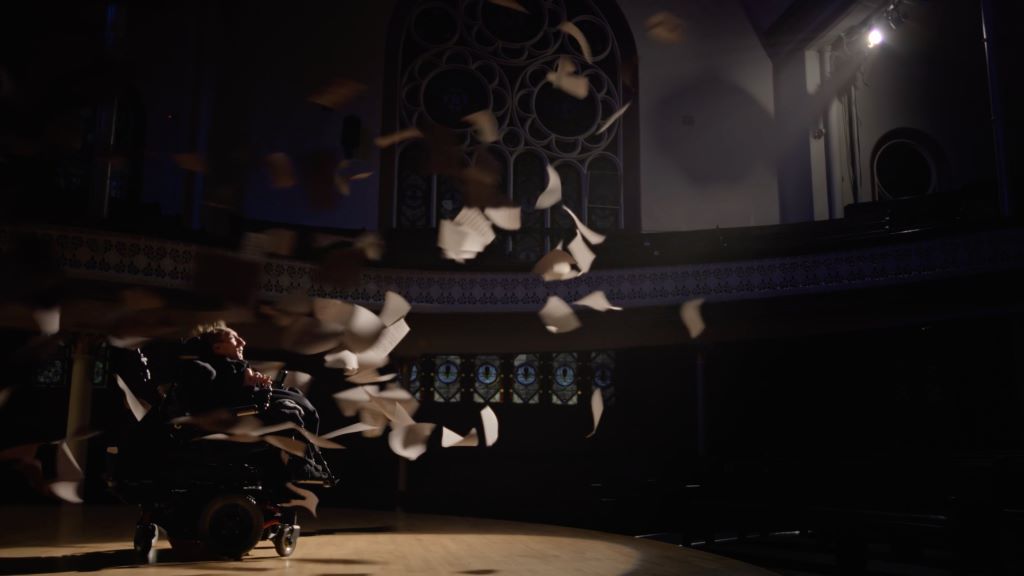
POV: How about in terms of your musical work — is there a particular piece you’ve composed that you would like to be most known for?
AK: If we’re talking about one specific composition within a project, then it would definitely be “Ari’s Theme,” which happens to be the name of the film, but it’s also the name of the composition for the film. It meant so much to me that part of it is tattooed on my body forever. There’s a brief clip in the film where you see me getting a tattoo and that’s actually the part of that piece that I wrote.
POV: In the film, we see a group of musicians playing “Ari’s Theme.” Given how personal that composition is to you, did you discuss with the musicians ahead of time what the piece means to you or how you wanted it to sound?
AK: Right before they played it, I gave a very short description of what it means to me and the story that it’s portraying. Because I’m not a musician, I don’t know exactly how the instruments are best played, so I leave it up to [their] interpretation. I add to that with this style of instructing them with emotions rather than planning techniques. So I would say, “This is really graceful and soft, and delicate.” And then they figure out with their own instrument how to best do that. I definitely let people know the emotion behind the piece and let them go with it.
POV: I found your relationship with your music therapist, Allan Slade, very heartfelt and it feels like you two know and trust each other intrinsically. Was that connection instant or did you build it over time?
AK: That was me trusting him over time. Now we sometimes joke — I’m not a big fan of this joke actually — but he’s both a music therapist and a mental therapist to me. I will talk to him about issues that I’m having and stuff, not related to music, and he’s just there for me. He claims it’s just a part of the whole process — he becomes that for people, whatever people need. He’s become a good friend, and helps me through a lot of things, and also with music therapy.
POV: Could you expand a bit more on what Allan and music therapy have brought to your life?
AK: It’s provided an outlet to be able to create music. I didn’t really create music at home at all for quite a number of years, it was just once a week with Allan. [He’s] said that he had to adjust his style for me because every client is different and we had to figure out what works for me. And what works for me is to do something constructive and meaningful. He’s used to just playing music with people and I was very much, “I want to make something, I want to have something tangible instead of just playing for an hour and have fun.”
Music therapy introduced me to music, basically. I don’t know if I would have gotten into it without music therapy and through that, made me realize that this could be a career for me. It’s really all thanks to music therapy.




